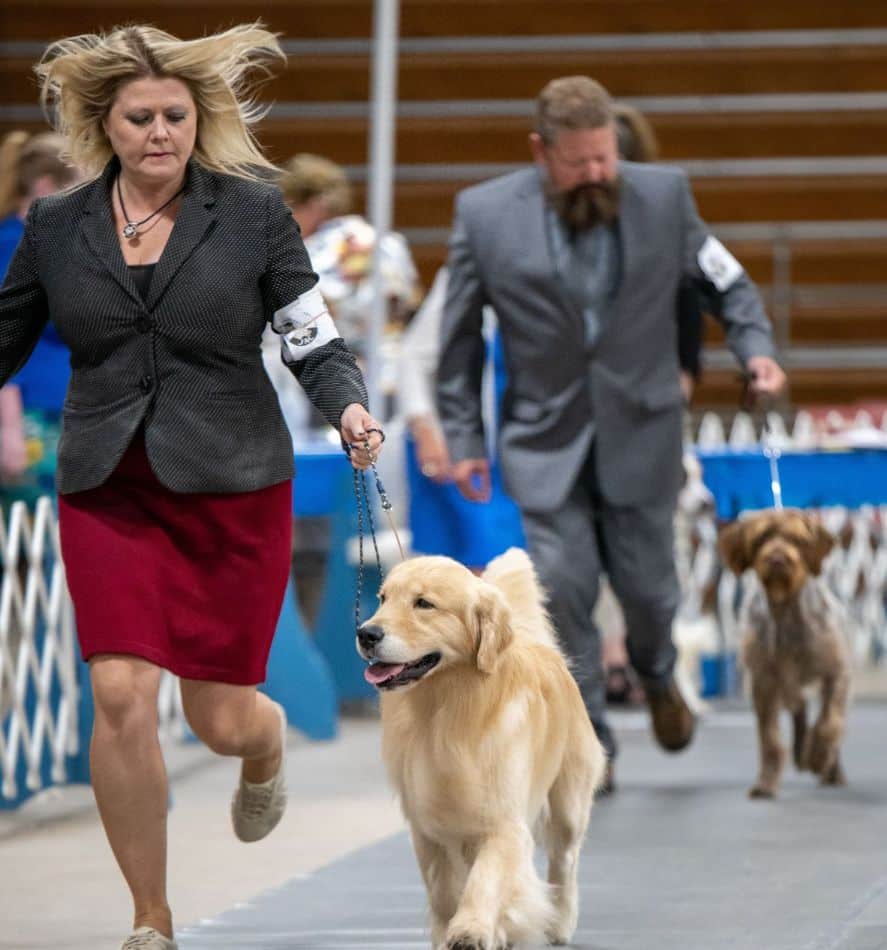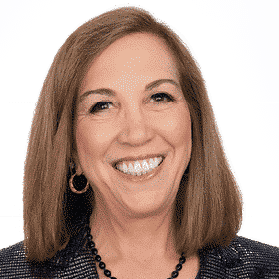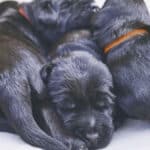Learning to Learn, Teach and Mentor | Every step along my 30-year journey as a dog show owner handler, judge, and mentor has evolved from a core passion to learn, to teach, and to mentor. Each experience, through both learning and being mentored, developed into a role of teaching and mentoring. It was the experience of being mentored that made me hungry to learn more. I wanted to study, to learn more and more about the breeds, and… more breeds. In turn, this “learning to learn” approach provided the pathway to judging, and later, to both teaching and mentoring.
As I met and interacted with people in the community, I was convinced that there was not only a need for learning, but there was also a desire, specifically among the owner handlers, to raise the bar. The running dialogue in my head was, “These exhibitors need to learn and want to learn. I know how to teach.” I knew that owner handlers needed help, and so I created Dog Show Mentor.
Where it All Began – The Backstory
My entry into the world of dogs started in my mother’s whelping box with Collies, and later, Goldens. We raised all kinds of animals on our property, but it was the dogs that interested me the most. My mother was a hobby breeder, but she showed occasionally, including at Morris and Essex.
As a young adult, a friend of mine had an Akita. I was enchanted by the essence of this proud breed, and the story about Hachiko and his loyalty to his owner. When I saw that same loyalty in my friend’s dog, I set my sights on the Akita to be my first show dog as an adult.
A year later, I chose “O-Kami” from a large litter. Of course, no novice Working breed owner should be allowed to choose their own puppy! It was a big mistake that eventually became a blessing—like so many things in life. Despite our rough start, that dog taught me a lot about dogs with special needs and about “reading” dogs. To this day, this helps me with puppies in the whelping box and in the ring as a judge. I still carry that tough, loyal, wild dog in my heart.
Fortunately, I found someone to help me with O-Kami, and she later became one of my trusted mentors. Mrs. Jan Marshall was a member of the Woodstock Dog Club and a Rottweiler breeder/owner/handler. Not only was she able to help me with my dog, she shared her passion for the Rottweiler. It became mine as well. Mrs. Marshall invited me into the Woodstock Dog Club, which was a safe haven to meet other dog people who took me under their wings and started teaching me to learn about many breeds and the world of dog shows.
In retrospect, it must have been so obvious that I was completely out of my league. I was not a natural, but I was a sponge! I was determined to have a well-trained show dog. That passion grew as I was mentored by seasoned breed experts.
Our hard work paid off. Once my Akita was trained, he won a 5-point major. I was hooked! Other exhibitors started noticing me and my determination to “get it right!” A Siberian breeder was happy to have a show travel companion, so off I went with her. Not only did I get tips, I had the added bonus of developing a working knowledge of the Siberian.
Sadly, my Akita died shortly after he turned two. The dog show community heard about the untimely, traumatic death of my beloved dog and rallied around me. In hindsight, this was a significant event in my entry into the dog world. Although at first, when he died, I had entertained the idea of leaving the dog show world, after experiencing the coming together and support from the community, I realized that I had stumbled upon a rather special family of dog show people and a unique opportunity for personal growth.
During those early years, I benefited from having mentoring opportunities at shows where people generously helped me to develop a new understanding of dog presentation and how to develop a strategic approach. Those early mentoring experiences helped inform the creation of the Dog Show Mentor program.
I emphasize the connections that I developed both in those formative years and in the 30 years since. In the Woodstock Dog Club, I held every position except Treasurer, taking on leadership positions such as President and Show Chair for fourteen years. With much study, mentoring, and working experience, I developed relationships with successful breeders of Siberians, Norwegian Elkhounds, Silky Terriers, Smooth Fox Terriers, Rhodesian Ridgebacks, and Labradors, to name a few. I wanted to study more, to learn more and more about the breeds, and… more breeds. In turn, this “learning to learn” approach provided the pathway to judging. I always knew my path was to become a judge; it was later that I realized I would
mentor others.
1992 – Competition & Community
The Rottweiler was the breed for me. I was enchanted with their minds as well as their bodies. I loved the characteristically powerful cadence of their gait; true to Rottweiler type. To be competitive in a breed that took 23 bitches for a major, I had to study and learn from anyone and everyone. There was little room for error. I wanted to win, but I wasn’t sure how at first. I sat ringside and studied the Doberman handlers. They helped me to understand not only presentation, but also being able to have a strong competitive spirit, and at the same time, be friends at the end. This is the epitome of competition and community. As an owner handler, I enjoyed some nice wins myself, and I also worked with professional handlers. Living in Vermont, traveling to shows added hours onto any show weekend. I found that working with professionals was convenient, and I got to learn even more about the sport and about presentation than I did by only sitting ringside. For me, it was always more, more, more. The rest of the ‘90s was a blur of attending one hundred shows a year, always—never less, hundreds of thousands of road miles, lots of champions, and many new friends. I loved showing up unexpectedly, knowing that I was prepared and that my strategy would likely pay off.
2002 – Transition to Judging
In 1999, I submitted my first application to judge a single breed; the Rottweiler. The AKC judge’s approval system at the time was “one for one,” so after seven years, I was approved to judge 17 breeds. It took 10 years on that system to get a Group. I’ve always taken my breed studies
seriously, so I meticulously prepared for each application and interview. (I continue to apply for more breeds as time allows.) Education is the key to being a more effective judge and mentor. Paying attention to the details, rather than “winging it,” is essential to both endeavors. I take pride in my training and husbandry, and I lean into my level of preparation, as I believe that that is the kind of preparation every judge (and mentor) should possess.
The American Kennel Club evidently agreed because, during this timeframe, I had the privilege of being hired as an Executive Field Representative—the ultimate study of all breeds. The Pacific Northwest welcomed me as a transplant, realizing that I had moved 3,000 miles to be with them. The move from Vermont was a culture shock, but it wasn’t long before I grew to love the area and the people. I am grateful for the opportunity to move and to work with clever breeders of excellent dogs. I’m honored to be part of the community.
A Formative Year – 2016
the Year My Whole World Changed
In 2016, my whole world changed. I was inspired to start a mentoring program for owner handlers. No more would they muse about what the judge was thinking. No more speculation about why they didn’t win. I had benefited from being mentored and I understood the potential for learning, teaching, and growth that is implicit in a mentorship. I was ready to be the mentor.
Thus, I created Dog Show Mentor (DSM), a program that is topic-based so that exhibitors of all levels can come together and explore topics of interest. The newer ones learn, not only from me, but also from each other. In turn, the more experienced members learn “Beginners Mind” and are able to look at situations and knowledge from a totally different perspective. This system serves all levels of owner handlers, and brings the importance of our dog show community to the forefront. Our Owner Handler Community teaches each member to share their knowledge and mentor others at dog shows. Through the interviews, masterclasses, and private coaching sessions, there is a body of knowledge gained from the broad perspective of many brilliant minds. The years of studying and being mentored by others continues, as I learn new breeds to help the Dog Show Mentor members in the program. This format
continues today.
As 2022 approaches, I am very excited to be launching a new, independent program called, Dog Show Mastery. It is a yearlong intensive for experienced dog show owner handlers who want to go farther, faster, and play their bigger game—really bring on their “A” game.
A Look to the Future
Did you know that +/-80 percent of the dogs shown at AKC shows are handled by their owners? Imagine if more owner handlers stepped into leadership roles, developed a fuller—deeper—understanding of what the competitive world of dog shows consists of, and used their influence for the good of the sport? What if those who blame and complain, instead, decided to contribute to make AKC what they envision?
For example, in today’s market, most shows can’t compete unless they offer a National Owner-Handled Series (NOHS). The owner handlers, who make up the preponderance of entries, select those shows where it is offered. They have, in effect, changed the system by voting with
their entries.
My vision involves a shift for the AKC National Owner-Handled Series to step into its rightful place. In its current state, the NOHS is sometimes perceived as being a subset of dog shows. This is not correct. I see owner handlers raising the bar every day. I see the owner handlers using their positive voice. At every show, in every ring, a quality dog with an owner handler prevails. Think about that. Every show, every ring, an owner-handled dog prevails. This is truly raising the bar on the quality of dogs and on the quality
of presentation.
A Call to Action
Rise up, owner handlers! Make the difference you want to see in the sport that you so dearly love! My own early mentoring experiences helped inform my role in the dog show world as an owner handler and a judge, and ultimately, for the creation of the Dog Show Mentor program. I am grateful for the early support that I received during a bleak time, when my dog died. I am grateful for the individuals who saw my struggles and gently offered their words of wisdom and mentorship. I recognize that growth involves the cycle of learning and teaching; being mentored and then mentoring. I am proud to be in a position where I can mentor owner handlers as they make their mark in the dog show world. I am also incredibly thankful for the individuals, the community, and the dog show world for providing me with a place to learn, a place to teach, and a place to meet incredible people while doing so.









